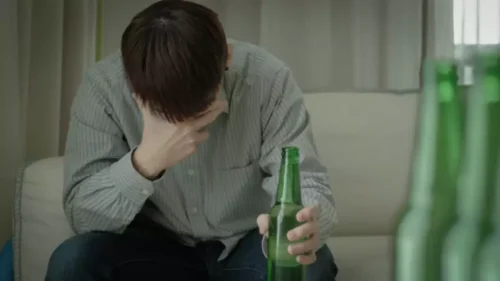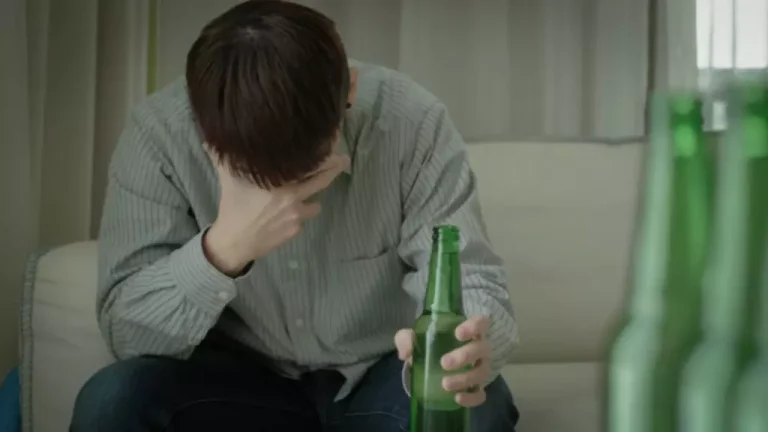
Symptoms of alcohol withdrawal can occur as early as a few hours after a person’s last drink. For some, these symptoms may peak within the first 24–48 hours after alcohol cessation, but they may continue after this point in others. And while symptoms generally improve within 5 days, some may experience prolonged symptoms. Many people with addictions convince themselves that they are alone and are the only ones going through their experiences. It can be very comforting to know that many people have gone through withdrawal before. We recommend reaching out to others who are also going through withdrawal or joining group therapy.
- However, medical complications can occur during the acute phase of withdrawal.
- If you’re experiencing alcohol withdrawal, your body might be going through an array of uncomfortable physical and mental changes.
- For most people, alcohol withdrawal symptoms will begin sometime in the first eight hours after their final drink.
- Your body may get overloaded because it has no alcohol to counteract your now perpetually excited nervous system.
Medication for Alcohol Withdrawal
Benzodiazepines (tranquilizers) are the main treatment for symptoms of withdrawal, like the shakes, and are also key to preventing serious complications such as delirium tremens (DTs). Toxicology screening is typically done with a blood or urine sample, and can also indicate if any other substances are in your body. If you’re receiving inpatient treatment, your doctor may perform toxicology screens more than once to monitor your alcohol levels. Contact your doctor right away if you’re concerned about the symptoms you’re experiencing during alcohol withdrawal.

Lifestyle and home remedies
Vitamins B1 (thiamine), B9 (folate), B12 and C are often recommended to aid recovery. These vitamins and minerals help support nerve function and overall health, which can be compromised due to long-term alcohol use. However, it’s important to consult a healthcare provider before starting any supplements, as they can advise on the most appropriate https://ecosoberhouse.com/ regimen based on individual health needs. The most dangerous form of alcohol withdrawal occurs in about 1 out of every 20 people who have withdrawal symptoms. If you have alcohol use disorder and want to reduce how much you drink or quit entirely, a primary care provider can guide you to resources and rehabilitation programs that can help.
- Your doctor may be able to help if you are having trouble managing your symptoms and provide medical supervision to ensure your safety as you detox from a substance.
- It’s important to be honest about your alcohol use — and any other substance use — so your provider can give you the best care.
- It may be easier on your rehabilitation to skip visits with “drinking buddies” or avoid gatherings with a focus on drinking.
- For delirium tremens, treatment in an intensive care unit (ICU) is often required.
- This is why some people may be hesitant or afraid to quit drinking.
What Helps With Alcohol Withdrawal? 18 Tips
Many people with alcohol use disorder hesitate to get treatment because they don’t recognize that they have a problem. An intervention from loved ones can help some people recognize and accept that they need professional help. If you’re concerned about someone who drinks too much, ask a professional experienced in alcohol treatment for advice on how to approach that person. If you have a sibling or parent with alcoholism, then you are three or four times more likely than average to develop alcoholism.

If you need to quit drinking, don’t let alcohol withdrawal scare you off. There are medications and treatments available that can help you get through those first early days of no alcohol consumption. Your doctor can help by prescribing medications for alcohol withdrawal that can alleviate or even stop some of your symptoms. Your health care provider or mental health provider will ask additional questions based on your responses, symptoms and needs.

How soon after treatment will I feel better?
This depends on the individual and the results of laboratory tests that their doctor may order. In general, blood work will test serum magnesium, and replacements will occur if indicated. Vitamins such as thiamine and folic acid will need to be supplemented. The person should also try to eat three well-balanced meals per day and drink enough water to remain hydrated. A high fever, hallucinations, and heart disturbances are all reasons to seek immediate help.
You may need to get fluids intravenously, or through your veins, to prevent dehydration and medications to help ease your symptoms. The symptoms may worsen over 2 to 3 days, and some milder symptoms may persist for weeks in some people. They may be more noticeable when you wake up with less alcohol in your blood.
Treatment significantly lowers your risks of complications and death. We’ll be able to tell you if your insurance provider is in network with an American Addiction Cure for Alcohol Withdrawal Symptoms Centers treatment facility. Because DTs can happen to people at various drinking levels, the best way to avoid DTs is to drink in moderation or not at all.

Amphetamine Withdrawal: Symptoms, Challenges, and Tech-Driven Solutions
Because denial is common, you may feel like you don’t have a problem with drinking. You might not recognize how much you drink or how many problems in your life are related to alcohol use. Listen to relatives, friends or co-workers when they ask you to examine your drinking habits or to seek help. Consider talking with someone who has had a problem with drinking but has stopped.
